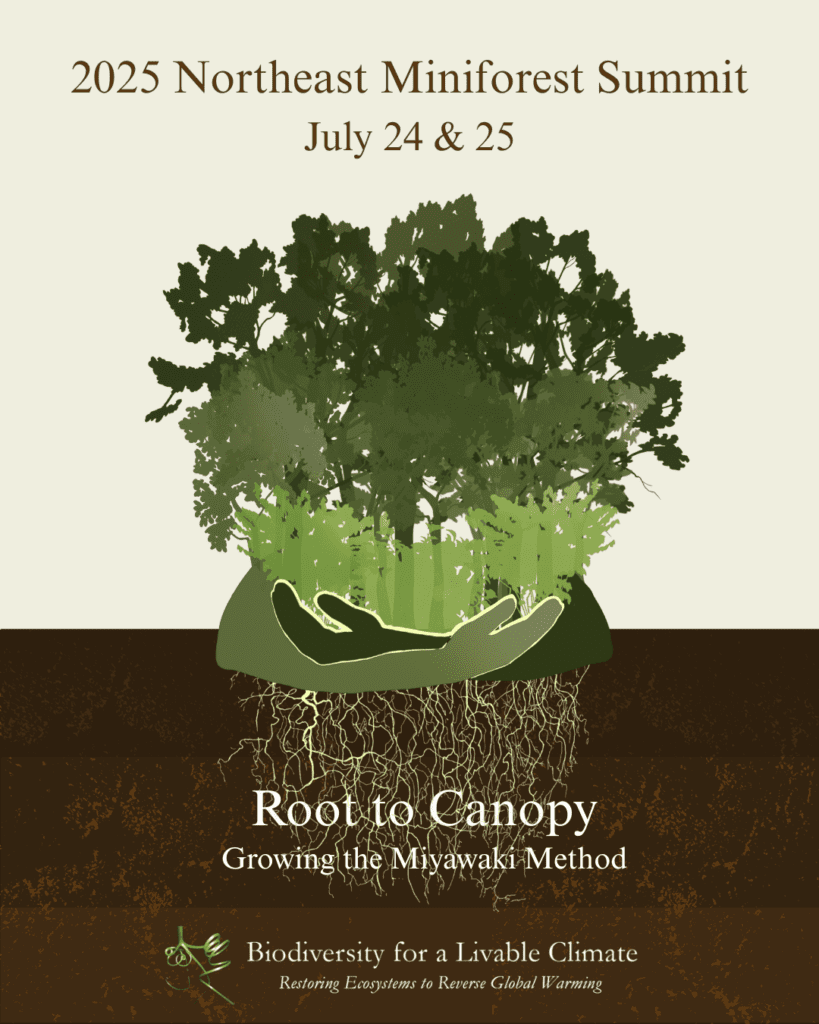We Need a New Climate Story
Nature is Climate
Biodiversity loss is not just the result of climate change, it is a primary driver of climate change. Only solutions that prioritize this web of life will create a truly livable climate for all.
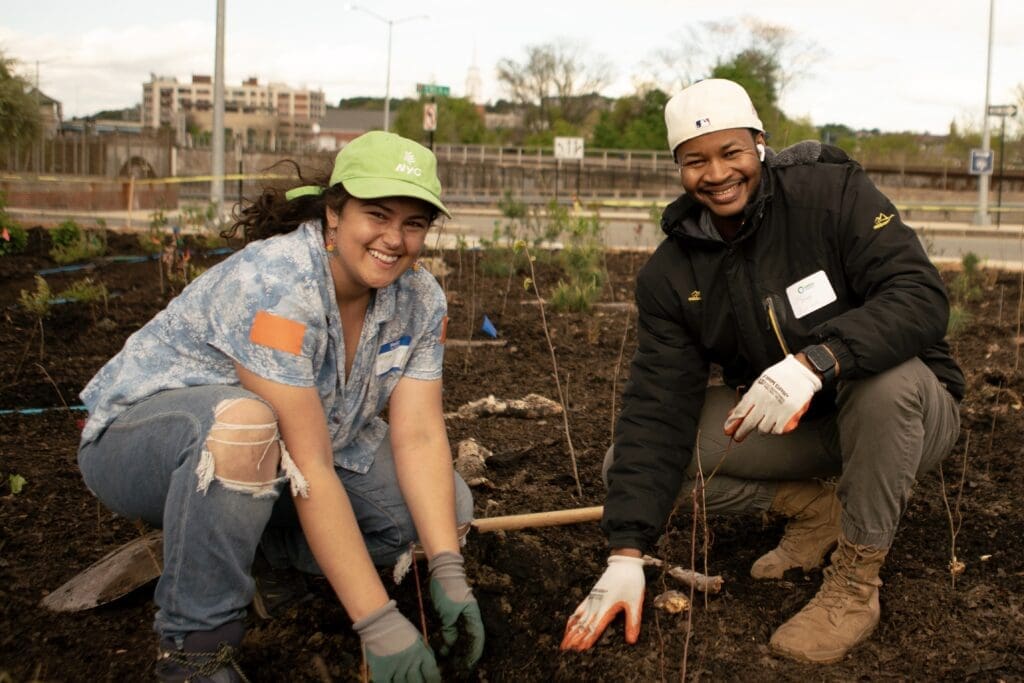
Restore Nature – Cool the Planet
Only nature has the ability to both cool the planet and lower greenhouse gas levels. Our planet is already too hot and too dry to maintain a stable climate and support life. These 4 Climate Keys are interlocking pieces of the cycles we must repair to quickly stop warming and start cooling the planet.
Cool
Healthy ecosystems full of biodiversity create direct cooling effects for our hot planet. More Nature = Less Heat.
Hydrate
Keeping water in the ground supports plants, crops and people. Beavers, insects and microbes are part of the Infiltration Team
Plant
Planting for biodiversity creates healthy ecosystems. Forests sequester carbon and use water vapor to move heat away from the Earth
protect
Indigenous leadership and wisdom can help us. Stop deforestation, industrial ag, mining, and pollution that kill off biodiversity.
Replace with regenerative practices
Q: What about atmospheric Carbon Dioxide – you know – the greenhouse effect?
A: It’s an important part of the story, but not the whole story. Learn More.
Who We Are
Bio4Climate Tells the Hidden Stories
For nearly a decade we have looked behind, around, and under the prevailing climate narratives for the missing pieces of the puzzle. We continue to bring you authors, ecorestoration specialists, and scientists from around the world who explore the interlocking systems that create a livable climate.
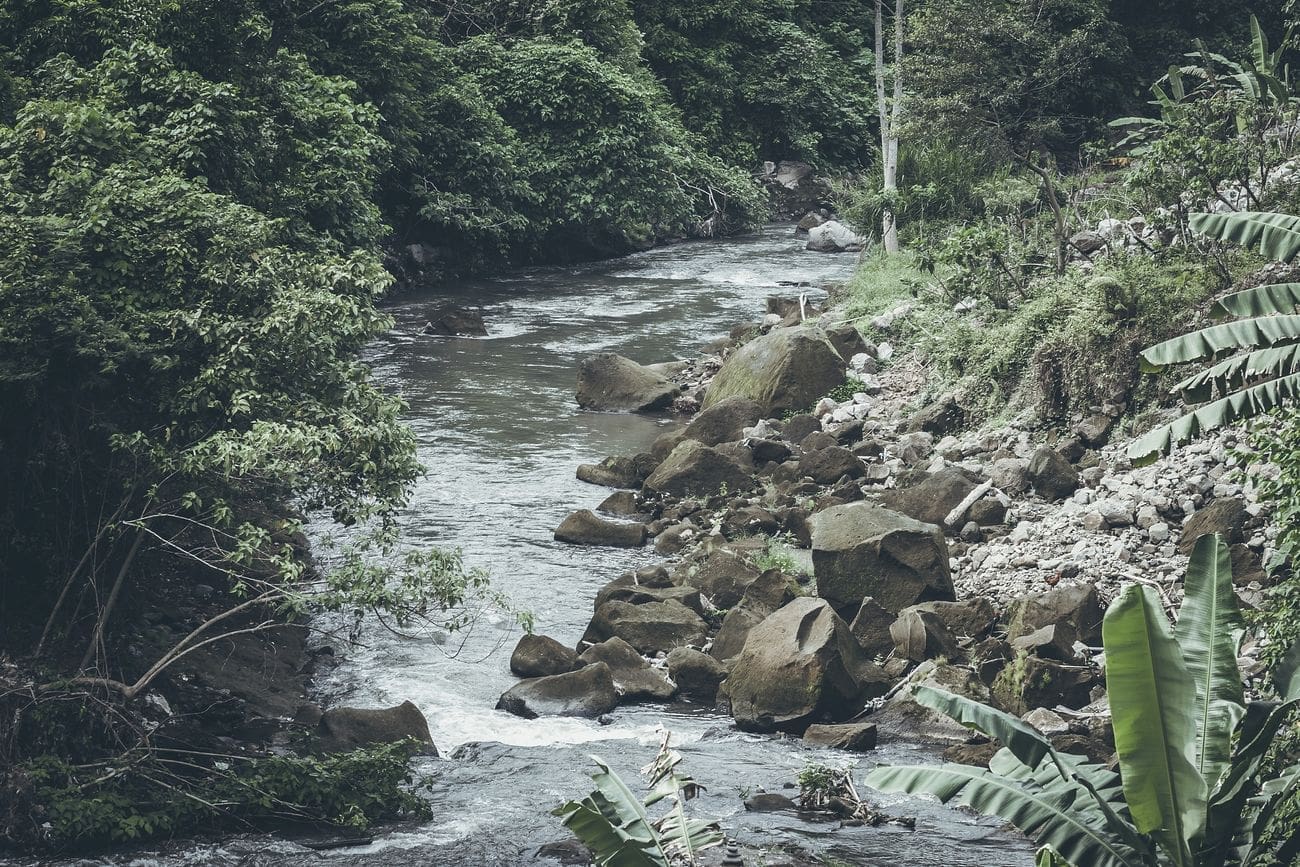
Stay on top of the Climate Conversation
Through education, policy and outreach, we promote the great potential of inexpensive, low-tech and powerful Nature solutions to the biodiversity and climate crises, and work to inspire urgent action and widespread implementation of many regenerative practices.
This Week
News and Insights

Biodiversity is Crucial to Human Health
Scientists are now acknowledging the direct connection between the loss of biodiversity and impacts on human health. Despite this growing recognition, the loss of biodiversity is not getting the same attention that climate change is among health care professionals.
This might be due to the dramatic effects that wildfires, floods and extreme heat have on communities as compared to the more subtle, less visible impacts of biodiversity loss, making the connection harder to see.
Physician Neil Vora and wildlife veterinarian Chris Walzer argue that the health care sector must treat biodiversity loss as a core public health issue because nature underpins the quality of our food, water, air quality, infectious disease control, mental health, and climate resilience. They note that major health policies largely overlook the crucial role of biodiversity, and urge integrating the protection and restoration of biodiversity into climate-health policy, clinical practice, community health programs, education curricula, and funding to avoid irreversible harm for current and future generations.
Events and Community
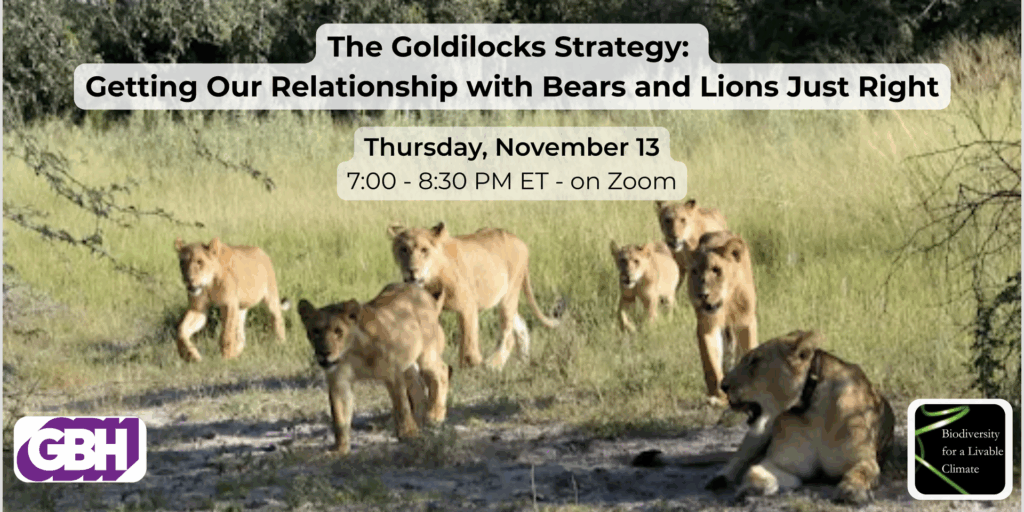
The Goldilocks Strategy: Getting Our Relationship with Bears and Lions Just Right
As a keystone species, humans need to safeguard other powerful animals while protecting the safety and livelihoods of local communities.
Learn firsthand from South African Novelist and Photographer Tony Eprile, in conversation with Botswana Director Dr. Andrew Stein of Communities Living Among Wildlife Sustainably (CLAWS), and Wildlife Ecologist Meghan Walla-Murphy, as they share their adventures and insights from working with animals such as lions and black bears.
They will discuss their work with dangerous predators and the communities that live alongside them; as well as the use of new technology and indigenous wisdom to coexist and thrive side-by-side.
Thursday, November 13
7:00 - 8:30 PM ET - on Zoom
Courses
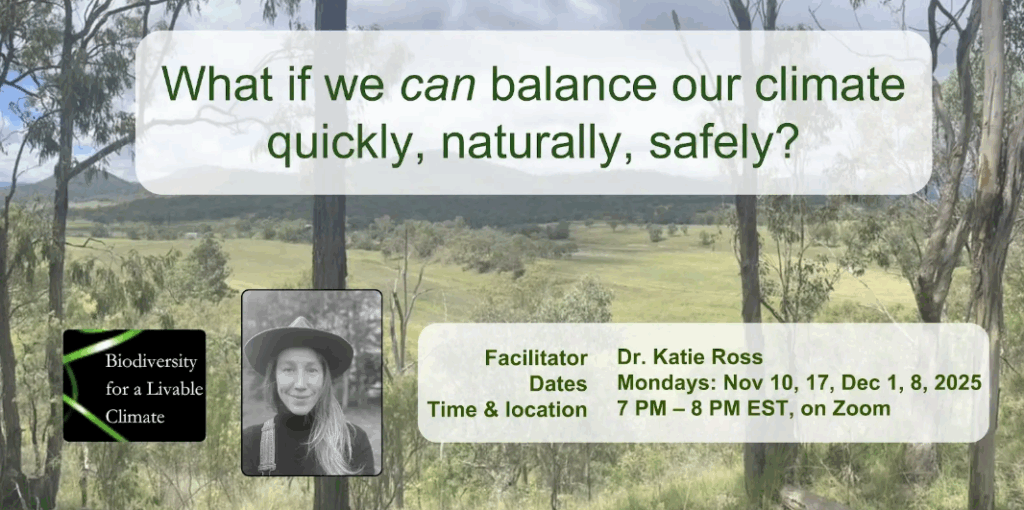
Who would you like to introduce to this living systems view of climate?
Is there someone you know who cares deeply about Nature, food, animals, plants but might not yet understand how Nature regulates the climate?
In Dr. Katie Ross’s upcoming course, “What if we can balance our climate quickly, naturally, safely?”, Katie starts with the basics—why the planet is warming, why living landscapes matter, why we focus so much on carbon, the role water plays in regulating the climate, and what we can actually do about it.
This course is a clear and welcoming introduction to how Nature regulates water, energy, and climate—and how we can help restore that balance.
So who do you want to bring into this conversation?
Invite them to join you in taking this course. Because when more people understand that it's living species and living systems that keep the temperatures cool, the land hydrated, and the rains gentle and steady, the sooner we will create a livable future for us all.
When: Mondays — Nov 10, 17 & Dec 1, 8 — 7:00 PM ET
Format: 4 Live, 60-Minute Zoom Sessions (with recordings each week)
Instructor: Dr. Katie Ross
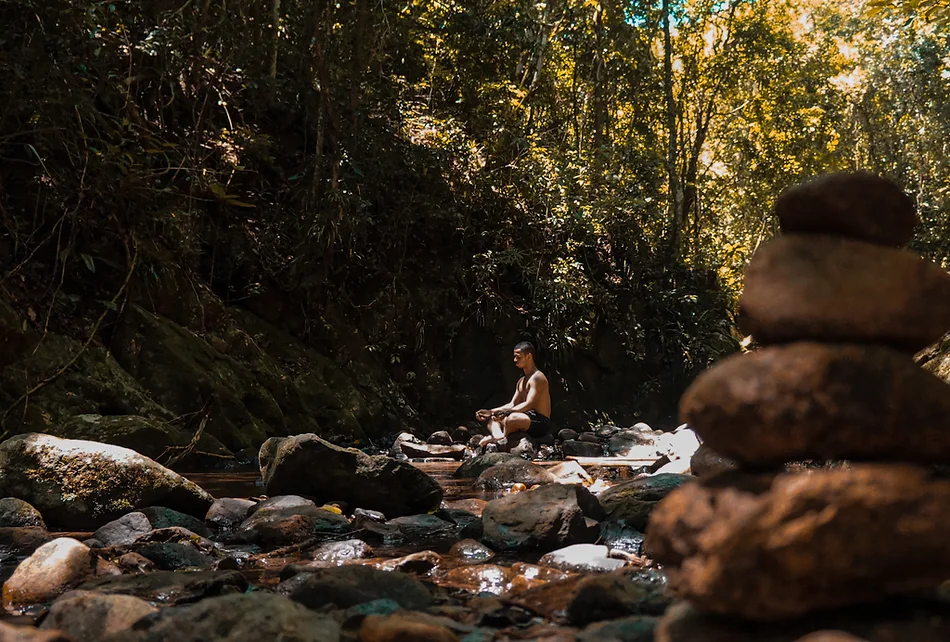
Tell nature’s climate story, the story of connection and life.
― Beck Mordini
Transformation in Mexico
Eco Restoration Works
Watch what happens! A degraded landscape in Mexico is transformed by regenerative management. It took only two years (the arrow points to the same tree).

